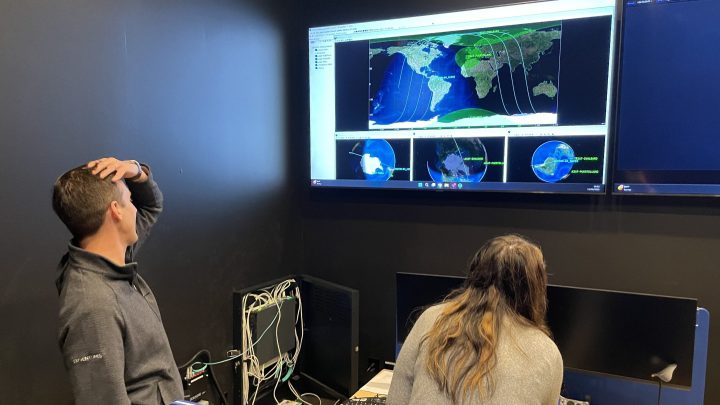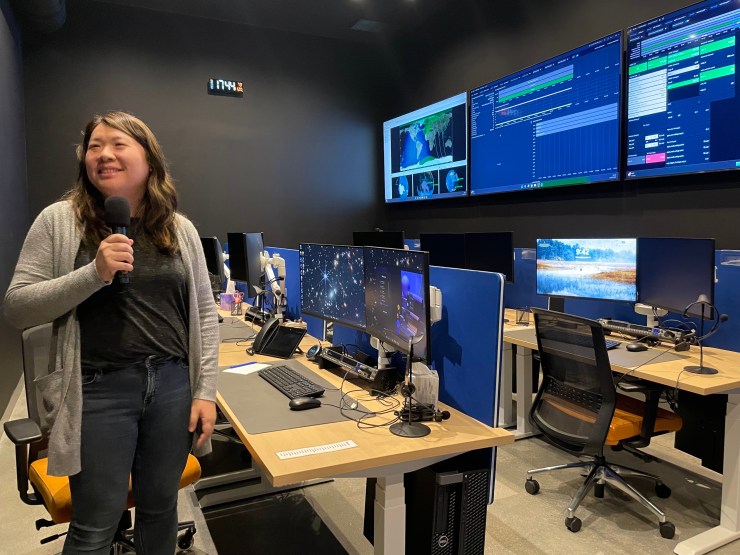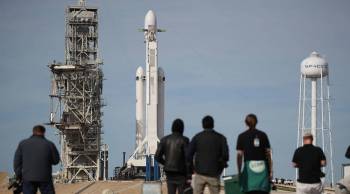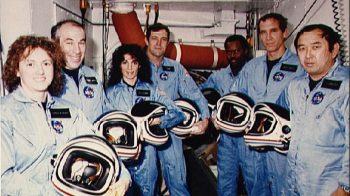
“Low Earth orbit is now open for business”

In a white-floored warehouse in El Segundo, California, Varda Space Industries CEO Will Bruey showed “Marketplace” host Kai Ryssdal a meter-wide spacecraft that his company claims will “expand the economic bounds of humankind.”
“We manufacture pharmaceuticals in space,” he said. “Removing gravity allows us to make medicines you otherwise couldn’t on Earth.”
Varda, which was founded three years ago by former SpaceX employees and members of the Silicon Valley venture capital firm Founders Fund, is part of the burgeoning commercial space industry in Southern California. “Low Earth orbit is now open for business,” the company’s website boldly claims.
The idea behind it is that certain products, particularly drug formulations, behave differently when manufactured in microgravity.
“Gravity is kind of like a parameter,” said Bruey. He likened the ability to dial down by sending chemicals into space to a temperature knob on an oven. “If you put a temperature knob on an oven, you create a whole world of new recipes and new food you can create,” he said. ”Similarly, if you can change gravity, you can also change the chemical process for drug formulations.”

The emergence of startups like Varda has been enabled by the increase in commercial flights to space on reusable rockets, from companies like SpaceX.
“Shipping to space is now just shipping,” said Bruey. “If you go to spacex.com/rideshare, you can book a slot on a rocket today,” added Varda’s Chief Revenue Officer, Eric Lasker. “We are not in the world of you need to get on top of, say, a shuttle mission and it’s going to be a two, or three, or four-year process,” he said. “You can actually go online today and book a slot on a rideshare mission, just like Varda is doing right now.”
Though the increased number of missions allows companies like Varda to experiment with pathways to commercialize space, regulatory agencies are struggling to keep up.
In a Senate Subcommittee hearing last month, executives from space companies including SpaceX, Blue Origin and Virgin Galactic urged senators to increase resources at the Federal Aviation Administration’s commercial space office.
SpaceX Vice President of Build and Flight Reliability William Gerstenmaier testified about a growing backlog in applications for U.S. commercial space launches and reentry licenses.
He warned senators that if the process doesn’t improve, the United States could face a “regulatory paralysis that will stifle the abundant innovation and capability that the private sector is bringing to market.”
Varda, which launched its first capsule into orbit onboard a SpaceX mission in June, is still waiting for approval from the Federal Aviation Administration and the U.S. Air Force to bring the spacecraft down at a military test site in Utah.
“I’m not worried long term because it is essentially paperwork at this point,” said Bruey. “But from a physics perspective, [it’s] totally fine.”
Though the pharmaceutical experiments onboard have been completed for months, the spacecraft will continue to orbit until the company overcomes the regulatory hurdles necessary to bring it down.

“We check in on her about once a week,” said Wendy Shimata, Varda’s Vice President of Autonomous Systems. “Otherwise, everyone’s on call … I actually have an app on my phone that will tell me if something goes wrong.”
Varda’s chairman and president, Delian Asparouhov, applauded a recent amendment to the Commerical Space Act of 2023 aimed at making it easier for the FAA and the Department of Defense to coordinate on commercial reentry approvals like the one Varda is seeking.
Varda has also reached an agreement with an Australian company to land future missions at a test range in Southern Australia, where they won’t need to coordinate with so many U.S. agencies.
In five years, Bruey said he hopes to see Varda launching and reentry spacecraft on a daily basis. “Shipping to space is now just shipping,” he said. “When we have day-to-day flights to space to bring back drugs, it’ll feel like part of the economy.”
Click the audio player above to hear Ryssdal’s conversation with Bruey at Varda’s El Segundo, California, headquarters.
There’s a lot happening in the world. Through it all, Marketplace is here for you.
You rely on Marketplace to break down the world’s events and tell you how it affects you in a fact-based, approachable way. We rely on your financial support to keep making that possible.
Your donation today powers the independent journalism that you rely on. For just $5/month, you can help sustain Marketplace so we can keep reporting on the things that matter to you.

















